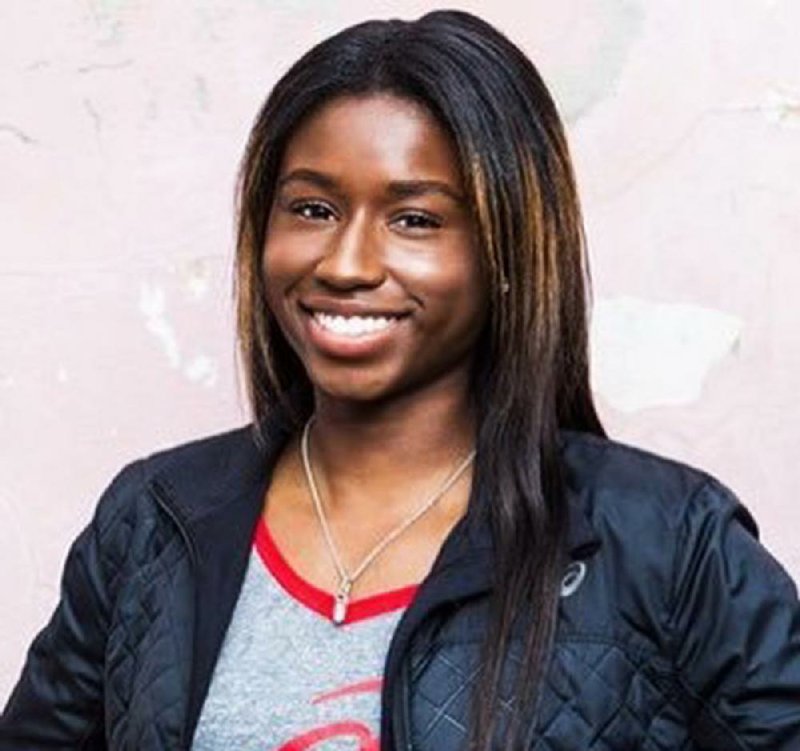Candace Hill is fast.
How fast?
She ran 100 meters in 10.98 seconds in June, setting a national record with a time good enough to have placed third at the NCAA Division I outdoor championships last year. It also would have tied for silver at the 2008 Olympic Games in Beijing.
And here's the kicker.
Hill, a junior from Rockdale County High School in Conyers, Ga., is 16 years old and the youngest professional track and field athlete in the United States.
Hill is the latest in a recent wave of talented young runners -- all female -- to join the professional ranks while still in high school, going straight to salaried racing and leapfrogging the traditional step of collegiate competition. This is a path that not even Olympic gold medalists like Carl Lewis, Jackie Joyner-Kersee or Edwin Moses took.
"Skipping college is attractive for three reasons: money, fame and momentum," Lauren Fleshman, a professional runner and five-time NCAA champion at Stanford, told Lindsay Crouse of the New York Times.
Sprinter Allyson Felix was the first one to skip the college ranks, turning professional in 2003 instead of running for Southern California. Ten years later in 2013, middle distance runner Mary Cain, then 17, signed with Nike before enrolling at the University of Portland. She opened the floodgates.
Cain was followed by distance runner Alexa Efraimson, who signed with Nike at age 17 in 2014. Earlier this year, Kaylin Whitney, who set the high school 100-meter record before Hill shattered it, signed with Nike on her 17th birthday. Middle distance runner Ajee' Wilson turned pro right after high school instead of competing in college in 2012.
But none of them stood out the way Hill does. Her potential is considered so huge that she brokered an unusual arrangement with Asics, a running footwear and apparel company.
It will cover full tuition for Hill, who has a 4.6 grade-point average and top-10 class ranking in her magnet school near Atlanta, at any college that admits her. The contract, which at 10 years is also uncommonly long, effectively serves as an athletic scholarship even though Hill, who plans to attend college while competing, will not be eligible to race collegiately. (Asics and Hill declined to discuss the financial terms of the arrangement.)
"Candace is as good a student as she is an athlete, and we found that intriguing," said Gene McCarthy, the chief executive of Asics America Group. "For us, she's a Halley's comet of sport, a teenager who's tremendously gifted in both mind and body. With that talent and drive, we're betting that she can be the fastest woman in the world someday."
Or, at least, that she'll do well enough to help sell shoes.
Arrested development
According to an internal league report, the number of arrests involving NFL players is going down.
According to the report: "Between 2007 and 2014, the league averaged approximately 70 arrest incidents annually for players, 20 for violent and 50 for non-violent conduct. Since Jan. 1, 2015, there have been 11 arrests for violent offenses and 28 for nonviolent offenses, a 44 percent decrease in total arrests from the historic average, and a 39 percent decrease in total arrests as compared to the same period in 2014."
According to the San Diego Union-Tribune's database, the last NFL player arrest came on Oct. 15, 2015, when the Seahawks' Derrick Coleman Jr. was arrested on felony charges of vehicular assault and a hit-and-run.
You have to wonder if the NFL has one of those signs like in a factory that shows how long since the last accident: "It's been 67 days since our last arrest."
Sports quiz
Who holds the world record for the women's 100 meters?
Answer
Florence Griffith-Joyner, who posted a time of 10.49 seconds in 1988
Sports on 12/21/2015
